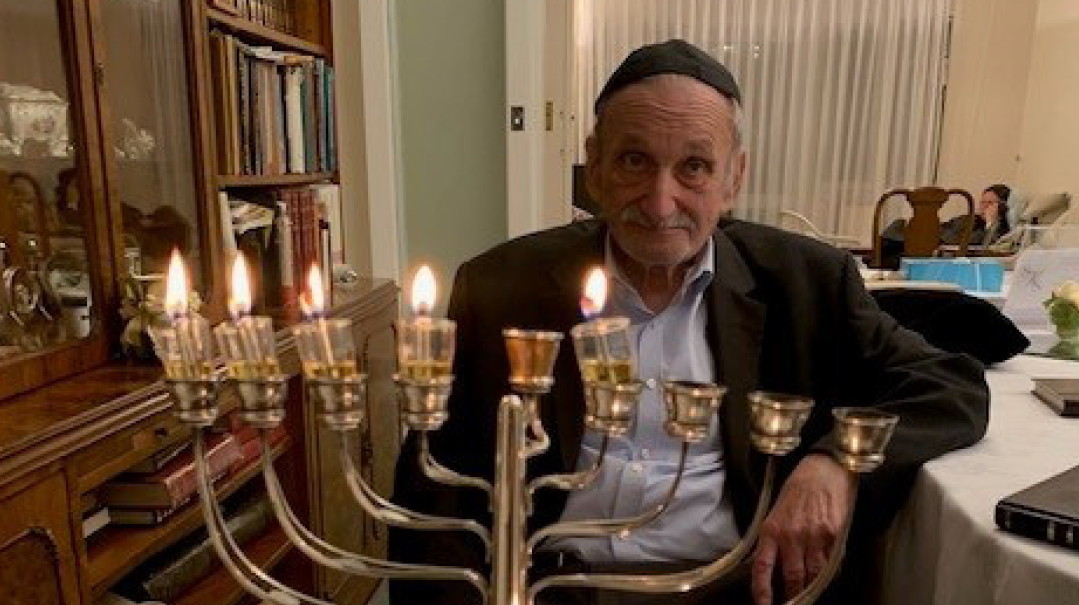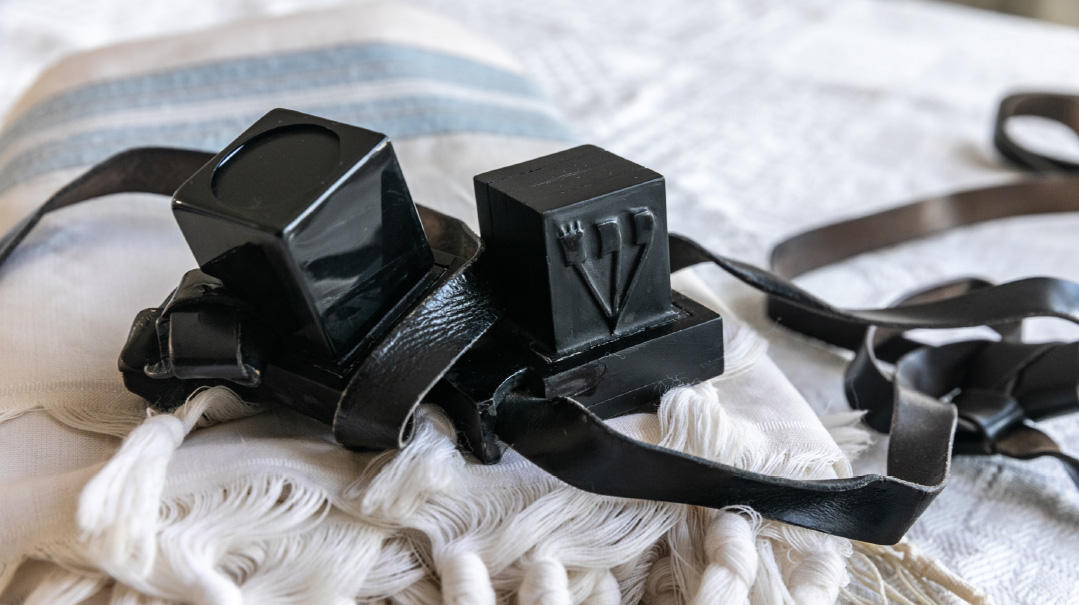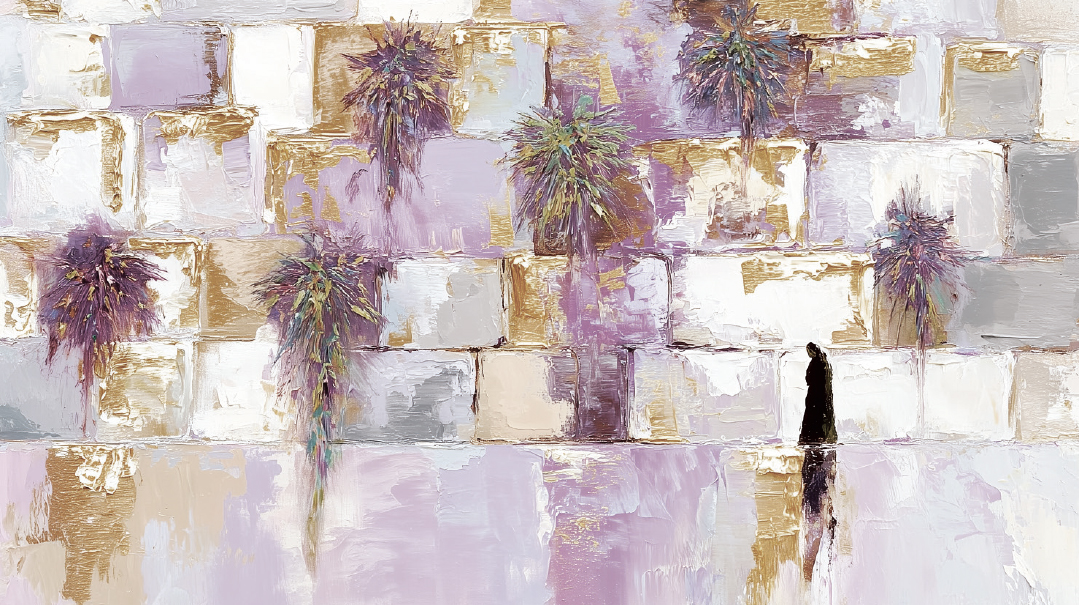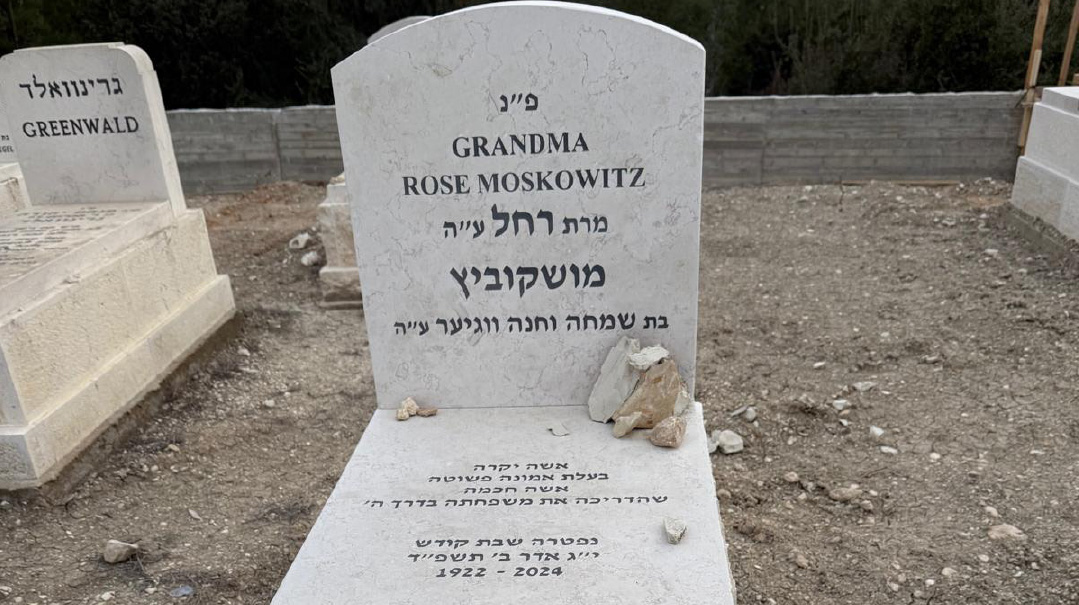A Simple Silver Menorah
| December 24, 2024Although Dad was not speaking much anymore, the song came out clear and audible, every word of Haneiros hallalu

Little did I know that last year would be the last year. We had the menorah ready on the foil-covered table, and the siddur open to the Chanukah page. Next to the little table, on the shelf, stood a picture of the Makover Rav, and a Rabi Meir Baal Haneis tzedakah box. I held my father’s hand steady on the candle; he lit the first flame in its little glass of olive oil. And then, although Dad was not speaking much anymore, the song came out clear and audible, every word of Haneiros hallalu, in the tune I loved to hear.
Singing and watching my father sing “Haneiros hallalu anachnu madlikin” has been a highlight of Chanukah since my childhood. He’d sing it with such strong emotion, a heartfelt song of faith, immediately after lighting his precious menorah.
My father, Mr. Gavriel Klein a”h (fondly known as George), was forcibly deported from his childhood home in Makó, southeastern Hungary, on March 16, 1944, when he was only 13 years old. He remembered the Nazis’ cruelty to Jewish youngsters, the way they tossed his precious bicycle down the steps, breaking it.
My father was a spirited only child, and when he realized Jews were being deported to an unknown fate, he was determined to keep the family silver out of the Nazis’ grasping hands. The same day they banged on the door to take him away, he took the silver menorah and some other items, went out to the garden, and carefully buried them near a tree, marking the tree with an X so that if he survived and came back, he’d be able to find them.
The train my father was herded onto was en route to Auschwitz, but at the last minute, it was diverted, and he ended up in various labor and concentration camps instead. One story he always told us children happened when they were waiting to be loaded onto the cattle trucks in Budapest. He told us it was a boiling hot day, and they were desperate for some water to drink. The SS guards gave them all metal cups to hold in their hands, and then they came with a hose pipe to fill the cups with water. As my father put the cup to his mouth to drink, the guard came and pushed it out of his hand… and my father could only watch in silence while the water trickled away on the earth right before his eyes.
Baruch Hashem, he did survive, and was liberated in Terezin (Theresienstadt) outside of Prague on May 8, 1945. His mother had somehow survived, too. My father made his way back to the family home in Makó, but was denied entry by the Hungarians who had taken over the house. He crept into the garden, found his X on a tree, and retrieved the menorah and other silver items he’d hidden.
The next chapter of his life took place in London, setting up a family in a totally new environment, establishing himself in the community, becoming a stalwart member of Reb Chuna’s Beis Hamedrash in Golders Green. His menorah came along with him. It’s a simple piece of silver, by now 120 years old, nothing too fancy or ornate, but lighting it, and singing the melody of Haneiros hallalu from his own childhood, meant the world.
My father passed away in Adar last year. He had lived a long life, surviving for 80 years after the Nazi attempt to erase European Jewry forever. Chanukah won’t be the same this year without my father, without his menorah, and without his Haneiros hallalu.
(Originally featured in Mishpacha, Issue 1042)
Oops! We could not locate your form.






